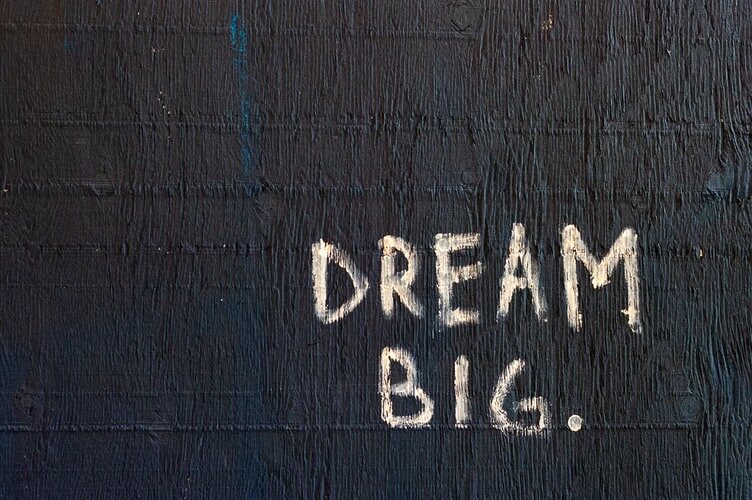Finding Self-Confidence
“One day, the people that didn't believe in you will tell everyone how they met you.” –Johnny Depp
I promised a blog on this quote, “One day, the people that didn't believe in you will tell everyone how they met you,” on my Instagram account. The quote is from Johnny Depp. I know nothing about his childhood, and nothing about most everyone reading this, but I can make a guess with a great deal of confidence: at some point others doubted him, and because of that he went through a period where he didn’t believe in himself. Actors often talk about how their first auditions are almost always an exercise in making it past self doubt alone — often even to show up. More to the point, at some point in your life, others have doubted you. Likely, they have doubted you to the point where you felt debased and belittled. And equally likely, this started at an age when you tucked this into your subconscious. Yet it has changed you; it either made you doubt yourself or challenge yourself. For me, it did both.
Take a second and think back to your childhood when you were dismissed, belittled, and made to feel “less than” by someone else, and what was put into your subconscious mind. As children we do not have the tools to handle dismissal, so it goes into our subconscious — research has shown that 87% of our thoughts are subconscious, and astonishingly, we are hit with 2 million bits of data every second and consciously aware of only 7 of those bits. This leads, at some level, to any variety of a different behaviors. I have blogged about what effects that had on me personally (both good and bad) here and here. The doubts and belittlement I received mostly from having an older brother with his own insecurities, I sat on, but not in a dissociative way. I wasn’t particularly talented as a child at much, but I did do one thing well — I took as much of this in as I could, consciously, and vowed in my prepubescent mind I would make myself better. I would make that belittlement go away.
Which, when I hit a certain age (maybe 7 or 8), is exactly what I focused on. I did pushups and sit-ups in our basement where no one could see me. I remember talking to classmates in elementary school, and none of them did pushups. And I liked knowing that. I finally had something in my mind I did well. I read a ton. I vowed that I would not let people have a reason to belittle me any more. And it gave me self-confidence far beyond what I had previously had.
There’s a much larger lesson than my own, of course, and it is this. We are all a part of our subconscious mind, and our subconscious mind is a huge part of our childhood. If you want a jarring podcast on just this — here’s one from someone who, at seven years old, endured horrific trauma that changed his life in multiple ways.
McCarthy, from the podcast, quite understandably didn’t believe in himself past age 7, but when he dove into his childhood, he figured a lot out, and the more he did the more it took hold and changed his life. He went from eight years in prison in and out of solitary confinement to having a daughter, a loving partner, and his own company. Those who doubted him now tell everyone how they met him. Literally the start of the podcast.
It’s the same process for all of us — just with different traumas and different environments. Every child is hit with either some lower case “traumas” (mercifully that was me) or some upper case “Traumas” — abuse, abandonment, neglect, enmeshment. For all of use, though, at least one of the lower case “t”s is doubt — doubt cast from others that becomes doubt in ourselves. It is fuel.
The fuel can light the spark of low self-esteem or it can light the fire of belief in oneself. I got lucky in that the more I let my subconscious come out, the less I hid from it — the more I used those debasements to try to improve. And the more I improved, the more belief I found in myself. It’s the best kind of upward spiral. I think, in fact I am sure of it, that belief in your own abilities leads to many of the best things in life: relationships, work, hobbies, success. The inverse is also true; when we lack self-confidence, we are led to maladaptive friendships, maladaptive relationships, maladaptive job outcomes, and more. To use another quote:
“As is our confidence, so is our capacity.” –William Hazlitt
So, my takeaway is this. If every time someone doubted me I had run from it — or worse, hidden it from myself — I would believe it today. It would be a part of me very hard at this stage of life to undo. Again, for whatever reason I got lucky, and I didn’t let myself dissociate from my subconscious. I teased it out for motivation.
So if you are torn, if you’re on the cusp, if you have self-doubts (incidentally, that is everyone on the planet) — I’d simply encourage you to explore them. When you do, they can become motivating factors.
Prove people wrong. Shut up those memories. Spiral up. This creates profound success, often across multiple dimensions. When this happens, those people suffering from their own insecurities who did that to you — I bet maybe a few of them may indeed be quietly telling others how they met you.
